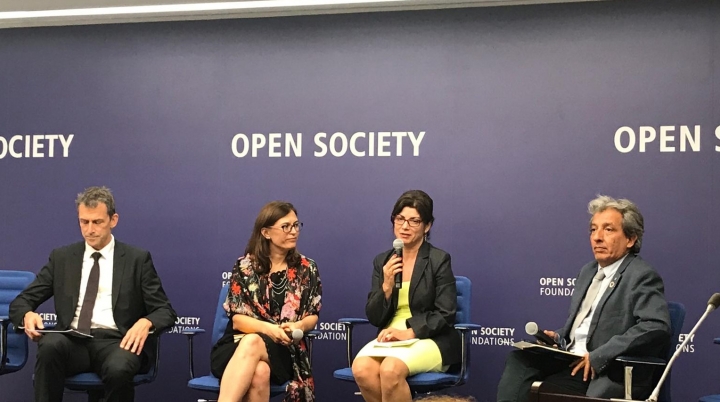






The event was held in New York City during the United Nations General Assembly.
On September 27, 2018, fifteen nations in Latin America and the Caribbean participating at the 73rd United Nations General Assembly signed the Regional Agreement on Access to Information, Public Participation and Justice in Environmental Matters in Latin America and the Caribbean, also known as the Escazú Agreement.
This historic agreement, which was drafted with the participation of civil society, is the first binding treaty in the region to establish protections for the rights of access to information, public participation and access to justice in environmental matters. It is also the first in the world to include a binding provision on the protection of human rights defenders in environmental matters, compelling States to protect environmental defenders from threats or attack, and investigate and punish these whenever they occur. The treaty will now enter into force 90 days after the signatory states have ratified it
Later that evening, a celebratory event titled “Regional Action on Environmental Democracy to Fulfill the Vision of the 2030 Sustainable Development Goals Agenda” was held at Open Society Foundations with Government officials, experts and representatives from civil society from around the world, including CEJIL’s Executive Director, Viviana Krsticevic. Participants gathered to discuss the importance of the agreement to inspire the other nineteen countries in the region to sign, ratify and implement the Escazú Agreement. Panelists praised the vigorous work of the drafters, who worked diligently over the years to ensure the treaty’s success. Krsticevic noted the importance of involving civil society in the drafting of the treaty. “One of the valuable things that the agreement has is that it was a participatory process. It strikes the right tone on issues of information, participation and access to justice but also creating an enabling environment for the protection of rights.”
Panelists also emphasized the significance of the Agreement’s provisions, calling for the agreement to be implemented thoroughly, in order to break the cycle of impunity associated with other international treaties. Panelists stressed the fact that Latin America is the most dangerous region in the world for human rights defenders, where over 60% of the human rights defenders killed in 2017 lived in Latin America. Article 9 of the Agreement requires that States provide a safe and enabling environment for human rights defenders, so that they may work safely and securely without restrictions or threats. Notably, States are also required to take the appropriate, effective and timely measures to prevent, investigate, and punish attacks, threats or intimidations that human rights defenders face when doing their work. As Krsticevic mentioned, “One of the critical aspects is the issue of breaking the cycles of impunity. You’re not going to have that robust participation if people are being silenced and if people are being killed. It’s not just about the violence, it’s about how we respond to the violence”.
The session rounded out with Costa Rica’s Vice-President and Foreign Minister, Epsy Campbell Barr, commending the efforts of civil society as drivers of the inclusion of provisions requiring the protection of human rights defenders. The provisions, she noted, “highlight the role of people as agents of change in a governmental framework that provides for protection and guarantees for the full exercise of rights.”
Help us continue this critical and urgent work with a donation!
DONATE NOW